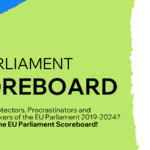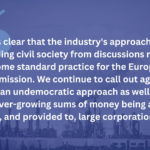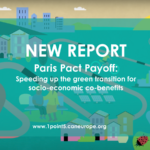Today the European Parliament voted in plenary for a greater share of support for developing countries in mitigating and adapting to climate change in the EU’s future external investments from 2021 to 2027.
Today the European Parliament agreed its position on the Neighbourhood, Development and International Cooperation Instrument (NDICI), which sets out to promote the EU’s interests, objectives and values in neighbouring and partner countries through external investments under the post-2020 EU budget.
The agreed spending target of 45% going to climate objectives and environmental protection – of which 30% must go to climate action – is a clear improvement compared to the European Commission’s proposal of 25%. The increase will contribute to the international commitment to mobilise USD100 billion per year for developing countries from 2020 under the Paris Agreement, and strengthen the EU’s climate diplomacy efforts in the United Nations Framework Convention on Climate Change.
The Council is still to come to its position. The Parliament’s strong majority for 45% gives a boost to the argument for more ambition, and Member States such as France and Slovenia are calling for a 50% climate and environment target in their negotiations on external action.
EU Parliamentarians are also in agreement that the remaining 55% of the fund should not be used to fund fossil fuels or cause harm to the environment and climate.
The European Fund for Sustainable Development Plus, which will see the European Investment Bank amongst beneficiaries, will be governed by the same climate and environment spending target and with the obligation to exclude fossil fuel projects from the fund’s financing.
Rachel Simon, Climate and Development Policy Coordinator at Climate Action Network (CAN) Europe said:
“Members of the European Parliament acknowledge the urgent need to strengthen EU support to help developing countries mitigate climate change and adapt to its devastating impacts. The 45% for climate and environment will also support economic modernisation, job creation and improved quality of the environment. Combined with the decision to exclude fossil fuels from support, this is the perfect recipe to allow developing countries to leapfrog straight up the chain of fossil fuels to renewable energy and energy-efficient solutions.”
“Discussions in the Council are lagging behind, but with a strong majority for more climate action and no more support for fossil fuels, the European Parliament has sent a strong signal to the Council and Commission at the subsequent trialogue negotiations. Maintaining an ambitious climate and environment spending target of 45% will be a litmus test of the EU’s climate leadership on the international scene.
The decision to exclude fossil fuels also sends a strong signal to the European Investment Bank, which would be a recipient of funds, and which is currently consulting on its energy lending policy.”
ENDS
Contact:
Nicolas Derobert, CAN Europe Communications Coordinator, nicolas@caneurope.org, +32 483 62 18 88
Climate Action Network (CAN) Europe is Europe’s leading NGO coalition fighting dangerous climate change. With over 150 member organisations from 35 European countries, representing over 1.700 NGOs and more than 40 million citizens, CAN Europe promotes sustainable climate, energy and development policies throughout Europe.



